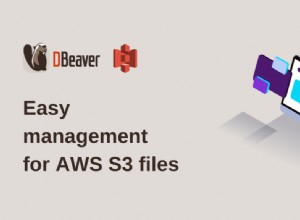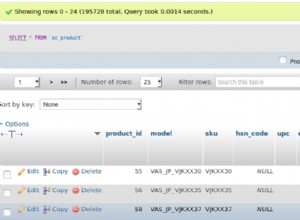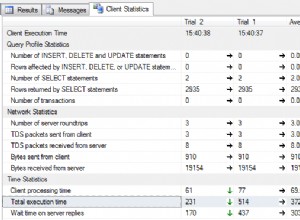La sceneggiatura di Collet con alcuni adattamenti ha funzionato per me.
Per prima cosa abilita xp_cmdshell eseguendo i seguenti comandi SQL:
-- To allow advanced options to be changed.
EXEC sp_configure 'show advanced options', 1;
GO
-- To update the currently configured value for advanced options.
RECONFIGURE;
GO
-- To enable the feature.
EXEC sp_configure 'xp_cmdshell', 1;
GO
-- To update the currently configured value for this feature.
RECONFIGURE;
GO
Quindi, aggiorna lo script seguente per ripristinare i database dai file di backup. Sostituisci C:\Backup\ con la directory locale contenente i file .BAK e sostituire C:\Microsoft SQL Server\SQLINSTANCE\MSSQL\DATA\ con la directory dei dati di SQL Server. Questo script presuppone anche che i nomi dei file .BAK corrispondano ai nomi del database, altrimenti lo script genererà probabilmente errori sui nomi dei file logici non corrispondenti.
DECLARE @FilesCmdshell TABLE (
outputCmd NVARCHAR (255)
)
DECLARE @FilesCmdshellCursor CURSOR
DECLARE @FilesCmdshellOutputCmd AS NVARCHAR(255)
INSERT INTO @FilesCmdshell (outputCmd) EXEC master.sys.xp_cmdshell 'dir /B C:\Backup\*.bak'
SET @FilesCmdshellCursor = CURSOR FOR SELECT outputCmd FROM @FilesCmdshell
OPEN @FilesCmdshellCursor
FETCH NEXT FROM @FilesCmdshellCursor INTO @FilesCmdshellOutputCmd
WHILE @@FETCH_STATUS = 0
BEGIN
DECLARE @sqlRestore NVARCHAR(MAX) = 'RESTORE DATABASE [' + SUBSTRING(@FilesCmdshellOutputCmd, 0, CHARINDEX('.', @FilesCmdshellOutputCmd)) + '] FROM DISK = N''C:\Backup\' + SUBSTRING(@FilesCmdshellOutputCmd, 0, CHARINDEX('.', @FilesCmdshellOutputCmd)) + '.bak'' WITH FILE = 1, MOVE N''' + SUBSTRING(@FilesCmdshellOutputCmd, 0, CHARINDEX('.', @FilesCmdshellOutputCmd)) + ''' TO N''C:\Microsoft SQL Server\SQLINSTANCE\MSSQL\DATA\' + SUBSTRING(@FilesCmdshellOutputCmd, 0, CHARINDEX('.', @FilesCmdshellOutputCmd)) + '.mdf'', MOVE N''' + SUBSTRING(@FilesCmdshellOutputCmd, 0, CHARINDEX('.', @FilesCmdshellOutputCmd)) + '_log'' TO N''C:\Microsoft SQL Server\SQLINSTANCE\MSSQL\DATA\' + SUBSTRING(@FilesCmdshellOutputCmd, 0, CHARINDEX('.', @FilesCmdshellOutputCmd)) + '_log.ldf'', NOUNLOAD, STATS = 10'
EXEC(@sqlRestore)
FETCH NEXT FROM @FilesCmdshellCursor INTO @FilesCmdshellOutputCmd
END




